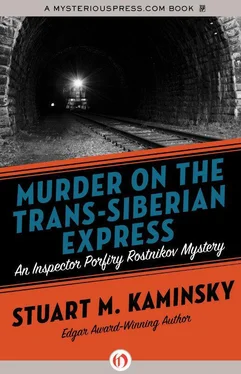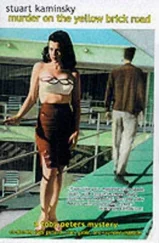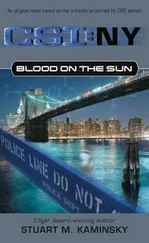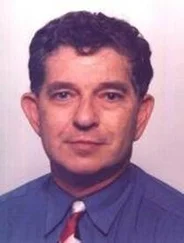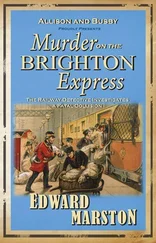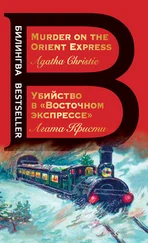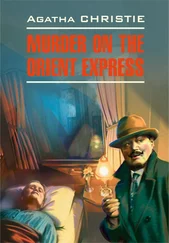Stuart Kaminsky - Murder on the Trans-Siberian Express
Здесь есть возможность читать онлайн «Stuart Kaminsky - Murder on the Trans-Siberian Express» весь текст электронной книги совершенно бесплатно (целиком полную версию без сокращений). В некоторых случаях можно слушать аудио, скачать через торрент в формате fb2 и присутствует краткое содержание. Год выпуска: 2012, Жанр: Полицейский детектив, на английском языке. Описание произведения, (предисловие) а так же отзывы посетителей доступны на портале библиотеки ЛибКат.
- Название:Murder on the Trans-Siberian Express
- Автор:
- Жанр:
- Год:2012
- ISBN:нет данных
- Рейтинг книги:3 / 5. Голосов: 1
-
Избранное:Добавить в избранное
- Отзывы:
-
Ваша оценка:
- 60
- 1
- 2
- 3
- 4
- 5
Murder on the Trans-Siberian Express: краткое содержание, описание и аннотация
Предлагаем к чтению аннотацию, описание, краткое содержание или предисловие (зависит от того, что написал сам автор книги «Murder on the Trans-Siberian Express»). Если вы не нашли необходимую информацию о книге — напишите в комментариях, мы постараемся отыскать её.
Murder on the Trans-Siberian Express — читать онлайн бесплатно полную книгу (весь текст) целиком
Ниже представлен текст книги, разбитый по страницам. Система сохранения места последней прочитанной страницы, позволяет с удобством читать онлайн бесплатно книгу «Murder on the Trans-Siberian Express», без необходимости каждый раз заново искать на чём Вы остановились. Поставьте закладку, и сможете в любой момент перейти на страницу, на которой закончили чтение.
Интервал:
Закладка:
The corpse was as white as the snow falling two stories above and outside Petrovka. The multiple wounds formed an odd pattern.
“We have had a very interesting conversation,” Paulinin said. “He has told me about his life and the woman who killed him.”
Elena wanted to ask what the dead man had said, but she still was not sure of the proper protocol with the odd scientist in the dingy laboratory jacket. Was he waiting for her to ask a question or would he be offended by being interrupted in his musings? Iosef had been the one to speak.
“What has he told you about the woman?”
Paulinin, hand still on the dead man’s head, twitched his nose to push his glasses back an infinitesimal notch, and said, “The woman loved him. She loved the others she attacked too. But she was reluctant to tell him, to tell them. She always strikes her first blows someplace vulnerable, the neck, eye, scrotum, nothing consistent, shy about admitting her purpose. She jabs. Here. There.”
Paulinin pointed at various wounds before continuing.
“And then, she strikes hardest at the heart, always at the heart, always the hardest blow. This time it caused her enormous pain. She used her right hand again. She has trouble maintaining her attack. The blade goes this way and that. The thrusts are growing weak. She tried her left hand. Remember?”
“Yes,” said Elena.
“But,” Paulinin went on, “it was not natural, it did not give her satisfaction. You want to know how I know?”
“Yes,” said Iosef.
“Because she went back to the right hand in spite of the pain. The right hand. The heart.”
“She wants to break his heart,” Elena said before she could stop herself.
Paulinin pondered her comment and nodded his head in agreement.
“Yes, something like that. She loves him. You said the little girl on the platform heard the attacker call the man Father.”
“Yes,” said Iosef.
“She loves her father,” said Paulinin. “I loved my father.”
“But you didn’t kill him,” Elena said.
“Of course not,” Paulinin said in exasperation. “And I don’t believe she has killed her father. She is sending him a message he cannot hear. Maybe she will kill him. Meanwhile, her wrist has a very severe sprain, possibly it is broken. She is probably feeling great pain. But that will not stop her from attacking again. The same kind of man, well-dressed, possibly carrying a briefcase, tall, between the ages of forty-five or so and fifty-five or sixty, from what my friend”-and here he gently patted the dead man’s head-“has told me.”
“Why does she attack on metro stations beginning with the letter K ?” Iosef asked.
“How should I know?” Paulinin returned with irritation. “I am not a psychiatrist. Maybe her father’s name begins with a K, or maybe something happened to her on a metro platform that began with a K, something when she was a little girl. Now she cannot remember which K station it is. Maybe her name begins with a K. Maybe a million things. When you find her, ask her and tell me.”
They had left Petrovka and walked miles in the nearly empty streets through the snow, talking, and Iosef had come up with his plan. Now he stood in Anna Timofeyeva’s apartment. He reached down to pick up the cat, which did not complain, and said, “I will wear a suit and tie, put a little gray in my hair, carry a briefcase, and travel from station to station spending time on each K platform.”
“He will make himself a target for a madwoman,” Elena said, looking at her aunt.
Anna Timofeyeva was a solid, heavyset woman with a wide nose and a distinctly Russian face. Her best feature was her large brown eyes, which she fixed on whomever she spoke to, giving her full attention, or, in some cases, the semblance of full attention.
“The likelihood of this woman finding you,” she said, looking up at Iosef, “is not great. There is no shortage of potential victims for this …” She almost said “poor woman” but stopped herself and simply said “woman.”
“You see,” said Elena.
“And who knows if and when she will strike again?” Anna went on.
“Her favorite time seems to be between nine in the morning and three-thirty in the afternoon,” Iosef said.
Anna pondered the answer and said, “She is not free to attack early and she must be somewhere in the late afternoon. Perhaps she has a night job. Most likely she has no job at all but she has something to do, somewhere to be.”
“The likelihood that she will find you,” Elena said, “is very small.”
“But,” her aunt said, “what other plan do you have? More police on the platforms? We know you cannot get them. Your plan cannot hurt.”
“Cannot hurt,” Elena exclaimed, rising from her chair. “It can get him killed.”
“The woman is not big,” Iosef said. “I’ll be alert. And there are not really that many men in suits and ties, carrying briefcases, on the metro. They are above the ground in cabs and private cars.”
Elena considered trying to reach Iosef’s father, but Rostnikov was on a train to Siberia. Iosef was his only son. He would surely dissuade him. She could go to the Yak, but she was certain he would see nothing wrong with the plan. He would not be the one making a target of himself on the metro platform, and the Yak had no great fondness for Iosef. Elena considered that it might even be possible to simply order Iosef not to do it. She was the senior inspector on the case. But to issue him an order in this situation might be a blow to their relationship.
She looked up at Iosef cradling the cat in his arms. He was no fool and he had several advantages in the situation. He had been an actor. He would not overact his role as a businessman. He was an ex-soldier, a combat veteran of the Afghanistan disaster. He had a keenly developed sense of danger.
Elena had little choice.
“All right,” she said, stepping in front of him and reaching out to pet Baku. “But I will be there every moment.”
Iosef smiled.
Inna’s mother’s name had been Katyana. Inna’s mother had been perfect. Katyana, Inna thought as she sat at the table, her wrist wrapped tightly and resting under a bag of ice, had betrayed her daughter by dying.
Inna adjusted the bag on top of her wrist. The wrist no longer hurt in the same way. It was now either numbly frozen or burning.
Inna’s life was no life. She took her pills and existed to please her father. There was nothing else. She was trapped, too frightened and too dependent to walk away. Where would she go? She had no other relatives. What would she do? She had no skills.
Viktor Dalipovna was her life. She had to take care of him. What if something should happen to him? Things happen, you know. He could have a heart attack, be killed in a robbery, get hit by a car or truck. One of the women he sometimes spent the night with might kill him in his sleep for the money in his wallet, his watch, his ring. He did not take good enough care of himself in many ways. His diet was bad. Inna fed him healthy meals. She never argued or disagreed with him. She snuck vitamins into his food, cut every speck of fat from his meat, even watered his vodka but ever so slightly.
Inna looked around the room. She would have to get up soon, retape her wrist, work through the pain, get her father’s dinner ready. Had she taken the medicine? She couldn’t remember. Had she meant to? Probably not. She was not supposed to take too much. But she had been taking none of it.
She put the question to her mother, whose ghost sat across from her on the other side of the table. The dead Katyana was the same age as when she had died, a mature, plump, pretty woman.
“Did I take the medicine?” Inna asked.
Читать дальшеИнтервал:
Закладка:
Похожие книги на «Murder on the Trans-Siberian Express»
Представляем Вашему вниманию похожие книги на «Murder on the Trans-Siberian Express» списком для выбора. Мы отобрали схожую по названию и смыслу литературу в надежде предоставить читателям больше вариантов отыскать новые, интересные, ещё непрочитанные произведения.
Обсуждение, отзывы о книге «Murder on the Trans-Siberian Express» и просто собственные мнения читателей. Оставьте ваши комментарии, напишите, что Вы думаете о произведении, его смысле или главных героях. Укажите что конкретно понравилось, а что нет, и почему Вы так считаете.
